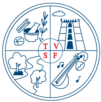Recent advances in science and giant strides made in neuro-imaging techniques have opened up new horizons for our understanding of brain functions. Scientists are developing research that shows clear physiological links between melody and the mind – a connection which was well known to the followers of an ancient Indian healing tradition, Nada Yoga.
A fascinating field of science, popularly referred to as neuro-musicology, is fast emerging, to throw light on the most complex organ of the human body, the brain, and its equally puzzling functions.
Inputs of selective sound and music have been examined for their impact on the brain.
The popular American opera singer, Denyce Grave lent her brain for a recent study by neurologists at a laboratory at George Town in Washington D.C, which revealed that three different musical selections (two operating recordings of which one was her own and a rock hit) affected the brain differently. The study revealed that the singer’s brain showed more cognitive involvement in listening to her familiar operatic songs, rather than to the unfamiliar rock music.
Fred Moreno of the New York Academy of Sciences would call music a complex human behaviour.
In Nada Yoga, the whole spectrum of frequencies in a musical octave was found to be in association with the energy frequencies of the human body.
In this system, the energy-centres or Chakras (chakrasthanas) which are seven in number were synchronized to each of the seven swaras (swarasthanas) of a musical octave through sheer concentration. In course of time by manipulating the changes in the frequencies in the musical octave (through ascending or descending order – aroha and avaroha, respectively), the desired chakrasthanas, representing a distinct state of consciousness, could be reached with ease and alacrity.
Recent developments in neurosciences confirm that the emerging discipline ‘neuromusicology’, will scientifically reveal the dynamism and richness, otherwise hidden in our musical experiences and which were recognized and applied in the ancient practices around the world and in nada yoga, in the Indian subcontinent.
The sound of music is being applied – from battling cancer- to excavating memories in Alzheimer’s patients, to relieving pain and to tap high marks in the examinations – in every field of human interest.
New studies also indicate that listening to and playing music actually can alter how our brains, and thus our bodies function.
Music therapy has gained new grounds as an effective intervention to those among us who are sick-bodied and/or mentally affected as it promises enhancement of ‘quality of life’, at the same time consoling or alleviating their sufferings. Though it is a budding field, the job market for music therapy has gone up by 30% – just in one year – between 1998 and 1999.
How India could contribute to the development of Music Therapy?
It is estimated that there is a body of at least 5,000 trained music therapists available in advanced countries, who are actively engaged all around the world and it is estimated that by 2010, the requirement for them will cross the 1,50,000 figures.
India, known for the richness of its musical tradition and the people already trained professionally in music, is virtually sitting on the golden mine for new job creations!
She can fill this great void admirably if organizations (both governmental and non-governmental) come forward to create adequate training infrastructure to straight away convert all these musicians (most of them jobless or underemployed now) into practising therapists.
Universities and educational institutions should also come forward to develop this applied field of music, instead of wholly devoting their resources exclusively to music as an academic curriculum – as is being done now.
Research institutions and medical colleges can play a greater role by sensitizing the medical professionals – doctors and paramedical staff – into this new-found area of employment, so that their services too could be qualitatively enhanced with music. Who knows, after IT and bio-technology, music therapy could be the forerunner in re-discovering the glory that was India!
This article was published in Shanmukha – October to December 2007 pages 39, 30
Edited by Geeta Shreedar, July 14, 2021
